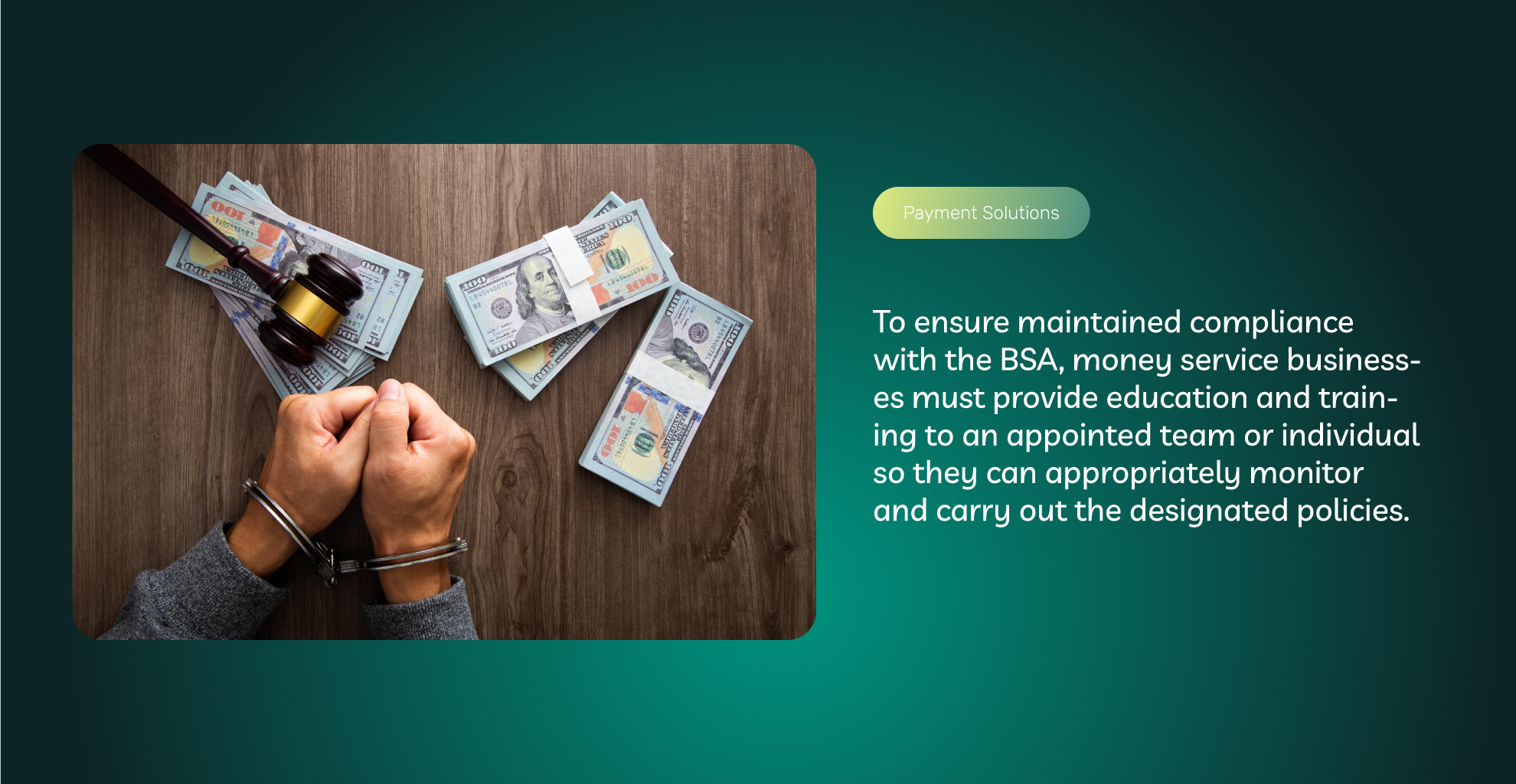A money service business (MSB) is a small sector of the financial services market that refers to any person, entity, partnership, or financial institution that offers financial services that handle the conversion or transfer of money.
Money Services Business (MSB) Defined
The money service industry is a small sector of the financial services market that refers to any person, entity, partnership, or financial institution that offers financial services that handle the conversion or transfer of money.
The Inland Revenue Service (IRS) oversees transactions exceeding $1 trillion annually, in the United States alone. And as far as defining specific MSB activity, the IRS defines money transmission and money conversion MSBs separately.
Conversion MSBs are allocated this distinction when the amount of money converted is a combined minimum of $1,000 per customer per day, within one or more MSB activities.
However, if the specific financial activity does not exceed $1,000 for a singular customer, the action is not considered to have happened under a “conversion money service business” label.
Money transmission activity is considered to be part of MSBs regardless of the amount involved.
Money Service Business Vs. Bank
A money service business is set apart from a bank.
Though you could say they are both in the money service industry…a bank or financial institution monitored by the Securities and Exchange Commission or the Commodity Futures Trading Commission has different policies it must comply with and higher funding opportunities and activities it can offer.
Whereas, a money service business could pertain to the following business types, persons, or actions:
- Check Cashing or check cashers
- Foreign currency exchanges
- Providing payment services
- Providing small loans
- Selling, issuing, or redeeming money orders, traveler’s checks, and prepaid access/stored value
- Money transmitter
- United States Postal Service
Growth in the Money Service Industry
With unprecedented financial setbacks during the rise of Covid-19’s global turmoil, money service businesses (MSB) have gained popularity.
Money Service Businesses have generated a new and evolving customer market as many have suffered extreme financial devastation due to the global pandemic.
With consumer debt rising to an all-time high, payday, and peer-to-peer lending have become increasingly popular.
MSB activities can meet the needs of the 2 billion people worldwide that do not maintain bank accounts and can be more flexible and adapt more seamlessly to change than a traditional bank would be able to.
As of September 2023, according to the US Treasury, Financial Crimes Enforcement Network Department website there are 25,242 registered MSBs in the United States alone.
According to Global News Wire’s most recent study with The Business Research Company, a compounded annual growth rate (CAGR) from 2020 to 2021 of almost 10% was expected to incur.
The financial services market, which includes MSBs, collectively acquires $22.5 trillion of annual revenue.
By 2025, this is expected to increase to $28.5 trillion for a CAGR of 6%.

Money Service Business Regulations
When it comes to money, federal governments must be involved. Money can be a tricky game as cash transactions may be difficult to trace, thus making the money service industry vulnerable to criminal activity.
Because of these risks, there have been multiple institutions set in place that regulatory compliance and safe practices for money service businesses.
They aim to prevent financial criminal activity. The specific regulations will differ depending on the country the MSB is registered with.
However, the USA and the UK have very similar regulations.
Bank Secrecy Act
In the United States, according to the IRS, like banks, money service businesses (MSB) must also comply with the Bank Secrecy Act (BSA) requirements.
The BSA requires MSBs and other financial institutions to be registered with FinCEN, the U.S. Department of the Treasury’s Financial Crimes Enforcement Network.
MSBs must then electronically file reports, and keep records of specific transactions with FinCEN.
After an MSB is established, they have 180 days to register with the federal government. Once completed, MSBs FinCEN registration must then be renewed every two years.
In cooperation with FinCEN, MSBs must also implement an anti-money laundering (AML) compliance program.
The reason for such strict policy compliance is to prevent MSBs from aiding in the corruption of money laundering.
Anti-Money Laundering Program
Money laundering is an illegal activity that utilizes a legitimate business to disguise criminally acquired financial assets.
This makes it difficult for the federal government to detect the source of the original funds. Money laundering is a global epidemic that accounts for $2 trillion or 5% of the global GDP.
In an e-commerce world, cash can be difficult to monitor and criminal funds can easily be transferred internationally or within country borders without a trace.
MSB companies that issue money transfers are at high risk to be easily subject to financial crime unknowingly.
Because of the exceptional rise in financial crime, MSBs are required to design, execute, and maintain an anti-money laundering (AML) compliance program.
This program must be set in place to prevent MSBs from facilitating money laundering or financing terrorist activities.
Even though MSBs may have no intention to assist in money laundering and financial crime, as compliance is cracked down at a federal level, regulations for anti-money laundering come with many difficult challenges MSBs must agree to overcome.
An MSB’s AML program must have written copies that can easily be produced for the Department of Treasury to inspect at any given moment.
The AML program must be designed to account for any possible risks the business may have. The program must integrate, maintain, and monitor the specifically developed policies.
To ensure maintained compliance with the BSA, money service businesses must provide education and training to an appointed team or individual so they can appropriately monitor and carry out the designated policies.
BSA compliance requires MSBs to electronically file reports of any activities that seem suspicious and are over $2,000. MSBs must also file reports for any high-value cash exchanges that total over $10,000 for a single person.
This is regardless of the number of individual transactions it took to total the $10,000 result.
Anti-money laundering regulations also require MSBs to ensure they have a process in place to verify and identify customers’ information during their initial onboarding.
This process is known as Know Your Customer (KYC).
Know Your Customer (KYC)
KYC procedures reduce the possibility of fraud and criminal pursuits. The KYC process helps to identify suspicious activity and high-risk customers.
MSBs must verify the identity of all customers using their services. This includes their full legal name, identification numbers from forms such as social security cards, driver’s license or passport information, address, and date of birth.
Once all customer information is identified, it is then run in a database that pinpoints persons on the sanctions list or politically exposed persons.
These databases will highlight potential customers who have the capacity to initiate financial criminal activity, such as terror funding or money laundering. This information must be stored and accessible for five years after the transaction takes place should an audit incur.
There are a few different avenues MSBs can choose from when determining the best solution that economically or conveniently fits their business needs.
Some KYC processes are done manually through third parties. Some KYC processes can be automated and handled through innovative software programs.


KYC Procedures Creating Customer Setbacks
Although KYC procedures are a substantial part of AML compliance, they can be quite time-consuming.
Because of the lengthy process, some MSBs may attempt to postpone KYC processes to appease their customers with a more favorable onboarding experience.
While MSBs aim to offer a more convenient, effortless alternative to the banking route, the delay in momentum to get the ball rolling on an account’s needs can dramatically hinder a customer’s willingness to see the process through.
Recent studies indicate that nearly half of MSBs perceive KYC procedures to be a hindrance to seamless business practices and customer experience.
Another study provided results that revealed a quarter of MSB clients abandoned the process altogether after applying. Two years after this study was completed, this number increased by 35%.
These staggering figures conclude the need for standardized procedures that are quick and more streamlined to retain customers, while still being able to negate financial crime.
Protecting MSB Reputation with AML Compliance
If any MSB reports seem suspicious enough to FinCEN, the U.S. Department of the Treasury’s Financial Crimes Enforcement Network, law enforcement may be contacted. Once law enforcement takes pursuit, MSBs must comply with their requests.
If an MSB is non-compliant with FinCEN regulations, authorities will pursue heavy fines.
These fines and reputational damage could shut down the business altogether. This would mean AML regulations are non-optional.
Though AML compliance is crucial, it does not always come with ease for MSBs. Strict regulations escalate onboarding times for clients and create a heavier financial burden for the MSB.
Maintaining compliance with BSA and FinCEN regulations through the proper AML practices is not only critical to federal authorities but additionally to MSBs customers alike.
When it comes to financial services, clients need to know their money is safe. MSB customers need to know they are doing business with a company that has integrity.
If an MSB is identified as lacking in AML practices or is fined for falling short in BSA and FinCEN compliance, clients and investors will swiftly be convinced that their information and funds are not secure.
Any indication of possible illegal activity will drive customers away and erode any previous loyalties. With the loss of customers, MSBs will face reduced profits and business failures.
Protection against these negative impacts with proper AML compliance is a non-negotiable must.
Emerging Safety Technologies in The Money Service Industry
As the market continues to evolve, so does the integration of emerging technologies in the money service industry. The financial services world is experiencing rapid technological advancements that have the power to alter how MSBs operate and service their clients.
Below, we will explore emerging technologies in MSBs and the impact they have on efficiency, security, and customer experience for MSB activity.
Cryptocurrencies
Cryptocurrencies, such as the well-known Bitcoin, offer a decentralized and cost-effective alternative for international money transfers. Cryptocurrencies are non-reliant on traditional banking systems, which could totally change the game for the money service industry.
Blockchain
Blockchain groups transactions into digital blocks with a unique code and links to the previous block of transactions. But, before a block is added, the network of computers must consensually validate the transactions. Once the block is added to the digital chain in the network, it is encrypted. Encryption makes this chain secure and nearly impenetrable to fraud.
Because this system operates on a network of all computers, there is no central authority. Beyond decentralization, blockchain’s benefits include enhanced security, transparency, and decentralized control, making it valuable beyond cryptocurrencies for tasks like supply chain tracking and digital authentication.
Artificial Intelligence (AI)
As we’ve discussed, the money service industry faces stringent regulatory compliance requirements, especially with Anti-Money Laundering (AML) and Know Your Customer (KYC) practices.
Artificial Intelligence can analyze a large amount of data in real-time to stay ahead of potential risks. These efficient processes can help automate compliance procedures and identify suspicious or fraudulent transactions.
Biometrics
Traditional KYC processes can be time-consuming for both the MSB merchant and its customers. However, leveraging biometrics with digital identity verification methods can increase the speed and accuracy of MSB customer onboarding for a more seamless customer experience.
Cybersecurity
Implementing cybersecurity technologies, such as encryption, multi-factor authentication (MFA), and threat detection systems, is essential to safeguard sensitive customer financial information.

Money Service Business Conclusion
Although money service businesses have been around for decades, the recent expansion of global commerce and travel, and the explosion of financial needs from the impact of Covid-19 have prompted MSBs to continue to rise in popularity.
MSBs are gaining global traction, however, they continue to face heavy burdens with compliance regulations from federal agencies.
These required procedures must be initiated and monitored closely to prevent legal businesses from illegally trafficking criminal funds.
While standards are becoming more strict, MSBs are still hesitant to adhere to these lengthy and costly procedures.
Certain procedures can hinder customer retention and prolong what was meant to be an easy financial transaction.
However, MSBs will have no chance of succeeding if federal entities catch the wind and hit the business with heavy fines and a detrimental loss of reputation.
With this being said, it is better for an MSB to be safe rather than sorry and eat the financial cost and time burden when it comes to making sure they are compliant with all their AML programs and KYC procedures.
Finding the right protocol is crucial to continue to serve the public with all their financial needs.
To contact sales, click HERE. And to learn more about ECS Money Service Business visit High-Risk.
Updated January 2024
